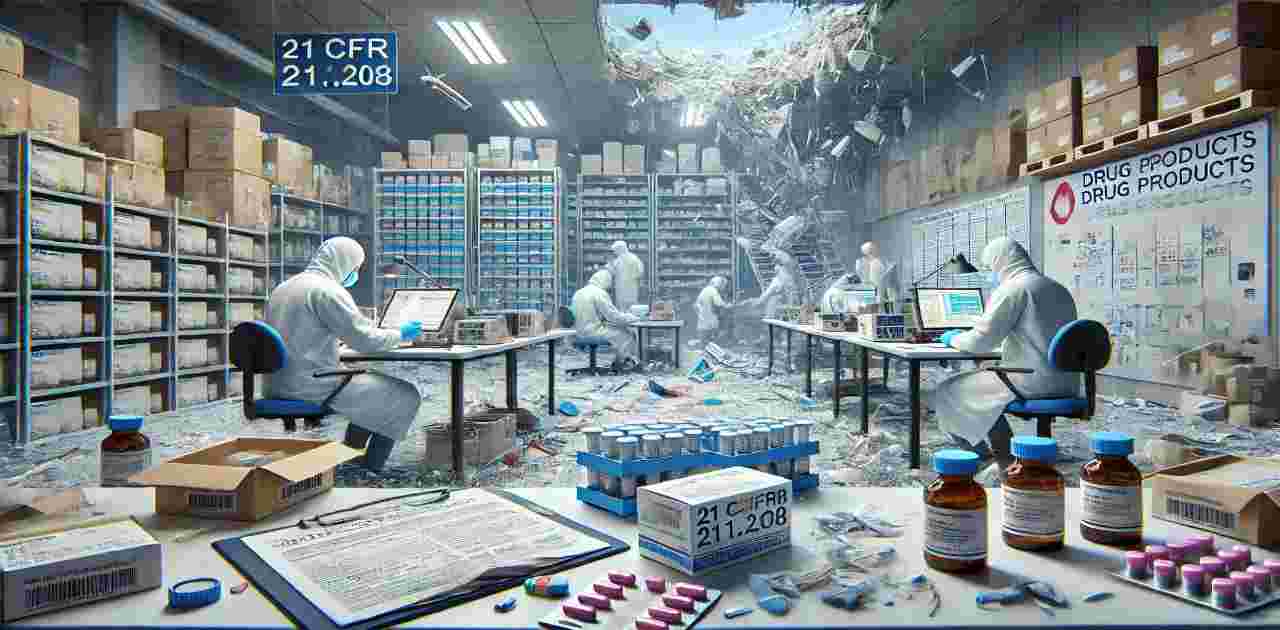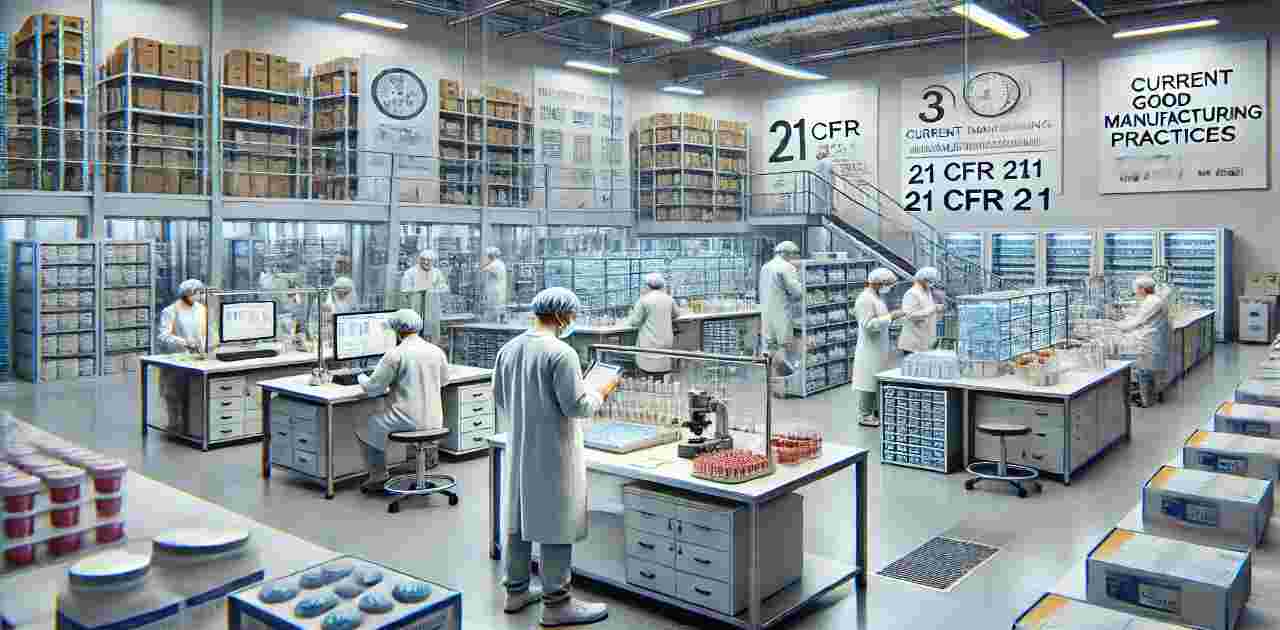Current good manufacturing practices for finished pharmaceutical 21CFR 211. The pharmaceutical industry operates under stringent regulations to ensure the safety, quality, and efficacy of drug products. Among these regulations, 21 CFR 211.208: Drug Product Salvaging stands as a critical guideline within the framework of Current Good Manufacturing Practices (cGMP). This regulation addresses the handling of drug products exposed to improper storage conditions due to natural disasters, accidents, equipment failures, or other adverse events.
It ensures that only products meeting strict standards of identity, strength, quality, and purity are considered for salvaging, safeguarding public health, and maintaining regulatory compliance.For further guidance on regulatory compliance, you may refer to CGMP guidelines for lyophilized product manufacturing and regulatory compliance for lyophilized products.
Drug product salvaging. Sec. 211.208
Drug products that have been subjected to improper storage conditions, including extremes in temperature, humidity, smoke, fumes, pressure, age, or radiation due to natural disasters, fires, accidents, or equipment failures, shall not be salvaged and returned to the marketplace.

Whenever there is a question whether drug products have been subjected to such conditions, salvaging operations may be conducted only if there is (a) evidence from laboratory tests and assays (including animal feeding studies where applicable)
That the drug products meet all applicable standards of identity, strength, quality, and purity, and (b) evidence from inspection of the premises that the drug products and their associated packaging were not subjected to improper storage conditions as a result of the disaster or accident.
Organoleptic examinations shall be acceptable only as supplemental evidence that the drug products meet appropriate standards of identity, strength, quality, and purity. Records, including name, lot number, and disposition, shall be maintained for drug products subject to this section.
Conclusion
21 CFR 211.208 serves as a cornerstone in the pharmaceutical industry’s commitment to quality and patient safety. By establishing clear criteria for drug product salvaging, it ensures that compromised products are not returned to the marketplace unless proven safe through rigorous testing. Adherence to this regulation not only protects consumers but also upholds the integrity of pharmaceutical manufacturers. Compliance is not merely a legal obligation but a responsibility toward public health. For more insights into troubleshooting manufacturing challenges, explore the freeze dryer troubleshooting guide.
Summary
Under 21 CFR 211.208, drug products exposed to improper storage conditions such as temperature extremes, humidity, or radiation must not be salvaged unless comprehensive testing confirms their compliance with identity, strength, quality, and purity standards. Additionally, the inspection of premises and packaging must affirm that the products were not adversely affected. Records, including details of product disposition, must be meticulously maintained to ensure transparency and accountability. For details on maintaining quality and conducting validations, see lyophilizer qualification guidelines and process performance qualification
FAQs
Q1: What is 21 CFR 211.208?
21 CFR 211.208 is a regulation under Current Good Manufacturing Practices (cGMP) that outlines the criteria for salvaging drug products exposed to improper storage conditions.
Q2: Can drug products exposed to extreme storage conditions be salvaged?
Only if laboratory tests and inspections confirm that the products meet applicable quality standards and were not adversely affected.
Q3: What evidence is required for drug product salvaging?
Evidence includes laboratory tests, assays, and premises inspection reports. Organoleptic examinations can be used as supplemental evidence.
Q4: Why is maintaining records important under this regulation?
Records, such as product name, lot number, and disposition, ensure traceability and accountability during drug salvaging operations.
Q5: What happens if products do not meet the required standards?
Such products must not be salvaged or returned to the marketplace, ensuring consumer safety and regulatory compliance. For comprehensive guides, visit lyophilization validation best practices or lyophilization cycle development.
